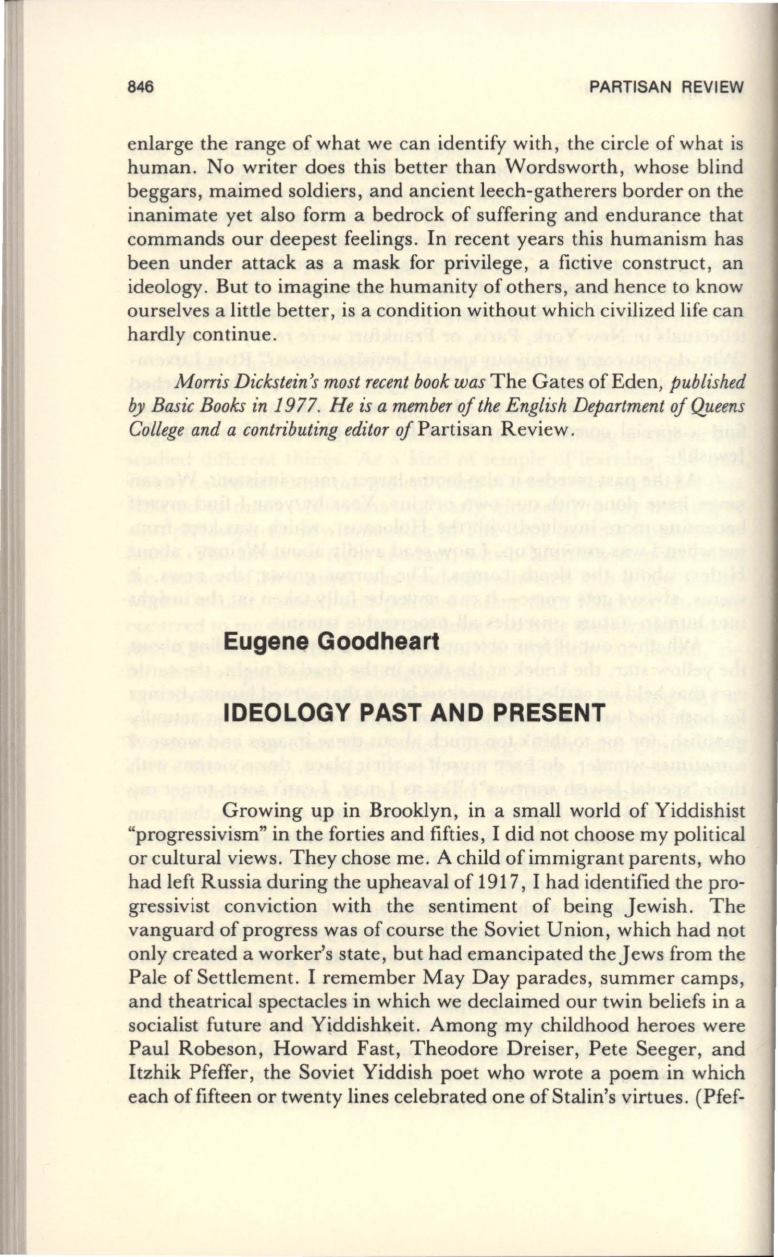
846
PARTISAN REVIEW
enlarge the range of what we can identify with, the circle of what is
human. No writer does this better than Wordsworth, whose blind
beggars, maimed soldiers, and ancient leech-gatherers border on the
inanimate yet also form a bedrock of suffering and endurance that
commands our deepest feelings . In recent years this humanism has
been under attack as a mask for privilege, a fictive construct, an
ideology. But to imagine the humanity of others, and hence to know
ourselves a little better, is a condition without which civilized life can
hardly continue.
Morris Dickstein's most recent book was
The Gates of Eden,
published
by Basic Books in 1977. He is a member of the English Department
of
Queens
College and a contributing editor of
Partisan Review.
Eugene Goodheart
IDEOLOGY PAST AND PRESENT
Growing up in Brooklyn, in a small world of Yiddishist
"progressivism" in the forties and fifties, I did not choose my political
or cultural views. They chose me. A child of immigrant parents, who
had left Russia during the upheaval of 1917, I had identified the pro–
gressivist conviction with the sentiment of being Jewish. The
vanguard of progress was of course the Soviet Union, which had not
only created a worker's state, but had emancipated the jews from the
Pale of Settlement. I remember May Day parades, summer camps,
and theatrical spectacles in which we declaimed our twin beliefs in a
socialist future and Yiddishkeit. Among my childhood heroes were
Paul Robeson, Howard Fast, Theodore Dreiser, Pete Seeger, and
Itzhik Pfeffer, the Soviet Yiddish poet who wrote a poem in which
each of fifteen or twenty lines celebrated one of Stalin's virtues. (Pfef-


